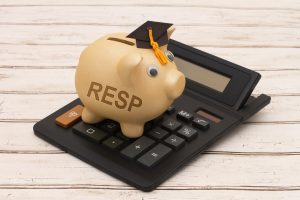
Fraud – It’s Rampant!
September 26, 2017
Cloud-based Bookkeeping Software – A Word of Caution
January 2, 2018
So, you did your homework and started a RESP for your child. Bravo! However, now junior is grown up and ready to go off to University – YIKES! Where did the time go? Certainly, time can seem as fleeting as our money. Below are some tips to ensure the RESP you so diligently cared for will yield the best results.
When can you start withdrawing from your child’s RESP?
Once a child is enrolled in a qualifying post secondary program, the RESP subscriber (usually a parent) can withdraw money on behalf of the child.
- For full-time programs, withdrawals are limited to $5,000 for the first 13 weeks of enrollment. There are no limits on the amounts you can withdraw thereafter.
- For part-time programs, withdrawals are limited to $2,500 for every 13-week period they are enrolled.
What are the tax implications of RESP withdrawals?
The RESP balance is made up of three different pools.
- Contributions you make personally – Withdrawing from the contributions pool has no tax implications.
- Government grants and investment income – Withdrawing from either of these pools can result is taxable income in the year they are withdrawn. We suggest ensuring your total annual withdrawals are made from these pools first until it results in the child having a high annual income. If more needs to be withdrawn in that year, consider drawing from the contributions pool. The flexibility around drawing from each of these pools varies between plans – so check with your plan administrator.
Plan to ensure the RESP account is fully withdrawn before the child graduates. There is a grace period of six months after graduation for the RESP to be fully withdrawn or transferred. Otherwise, there are penalties.
Ways to transfer the balance and avoid penalties
- Transfer the taxable portions to your RRSP if you or your spouse have RRSP contribution room.
- If you are in a RESP family plan, you can transfer the taxable portions to any siblings.
- If you are eligible, you can also transfer it to a Registered Disability Savings Plan (RDSP). For this option, the beneficiary for the RESP and RDSP must be the same.
What are the penalties?
If the RESP is not fully withdrawn before the six-month deadline, any remaining government grant will have to be repaid to the government and any investment income becomes immediately taxable at your child’s marginal rate plus 20%. The contribution portion can still be withdrawn tax free even if the child has graduated. We suggest speaking with your financial institution about how you would like these funds handled ahead of time. Feel free to contact us if you have any other questions.


